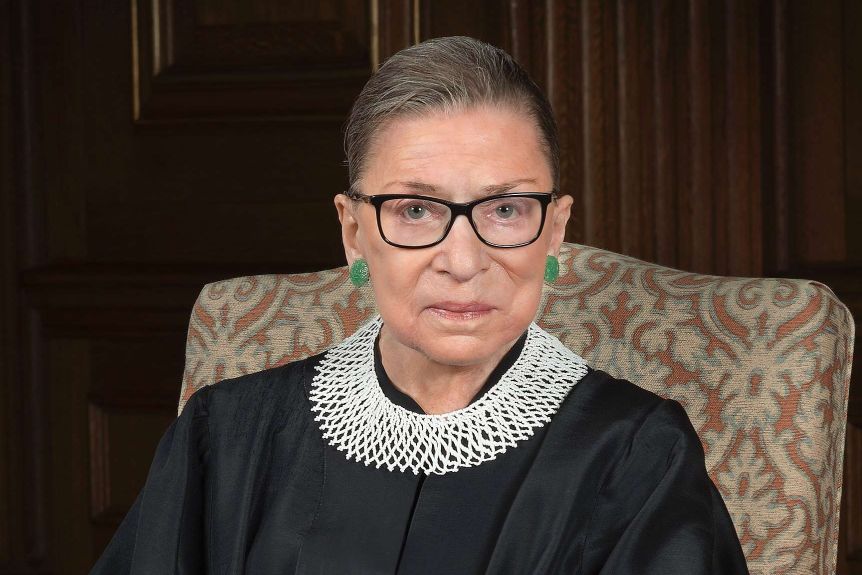Supreme Court Justice Ruth Bader Ginsburg dies at 87
Associate Justice of the Supreme Court and feminist icon Ruth Bader Ginsburg passed away Sept. 18, 2020 from complications of metastatic pancreatic cancer. She was 87.
Although suffering colon cancer in 1999 and pancreatic cancer in 2009, Justice Ginsburg served over 27 years on the Supreme Court bench. She was nominated by President Bill Clinton in 1993 and worked until the day she died.
Throughout her career, Ginsburg was outspoken about her views on gender equality. On June 14, 1993, the day Bill Clinton announced her nomination to the Supreme Court, Ginsburg credited her feminist views to her mother, Celia Bader, bringing tears to everyone listening. Her mother was a determined woman, graduating from high school at age 15; however, her intellectual ambition ended there as she was not able to attend college. Because of this, she wished more than anything that her daughter could fulfill her dreams of attending college and becoming a successful woman.
“I pray that I may be all that she would have been had she lived in an age when women could aspire and achieve and daughters are cherished as much as sons,” Ginsburg said.
Judge Ginsburg in no way fell short of this desire. She graduated from Cornell in 1954 and enrolled in Harvard Law School two years later, becoming one of nine women in her class of 500 students. She remained top of her class while also taking care of her daughter and husband, Martin Ginsburg, who had recently been diagnosed with testicular cancer. After he recovered, Martin accepted a job as a tax lawyer in New York and Ginsburg transferred to Columbia Law School and graduated first in her class in 1959.
After her graduation, Ginsburg clerked for federal district judge Edmund L. Palmieri for two years. She then returned to Columbia to work on a law project concerning civil procedure. The project not only required her to learn Swedish but also spend some time abroad in Sweden. At the time, feminism was booming in Sweden and this exposure proved to be extremely beneficial for Ginsburg’s later career in women’s rights.
After the conclusion of her time in Sweden, Ginsburg took a position at Rutgers Law School in New Jersey. She remained there until 1972, when she accepted a teaching job at Columbia and became the first female professor to earn tenure. In addition to teaching, Ginsburg also began volunteering for the New Jersey affiliate of the American Civil Liberties Union, the A.C.L.U, handling discrimination cases.
Shortly after, a childhood friend, Melvin Wulf, heard about her work for the A.C.L.U and set her up with the Idaho case on estate administrators that eventually became her first Supreme Court victory, Reed v. Reed. This began her career fighting against sexual discrimination in the Supreme Court. Her goal was to free both sexes from the stereotypical roles they had been assigned in society.
Five landmark cases and four Supreme Court victories later, Ginsburg was appointed by Jimmy Carter to the U.S. Court of Appeals for the District of Columbia in 1980. She served on the court for 13 years until 1993, when she became the second woman appointed to the Supreme Court of the United States. In this role, she became an idol for a much younger generation of feminists and was nicknamed Notorious R.B.G, a play on the name of famous Brooklyn-born rapper Notorious B.I.G, by law student Shana Knizhnik.
Even while enduring chemotherapy for pancreatic cancer and surgery for colon cancer, Judge Ginsburg remained a force to be reckoned with until the day of her death.


